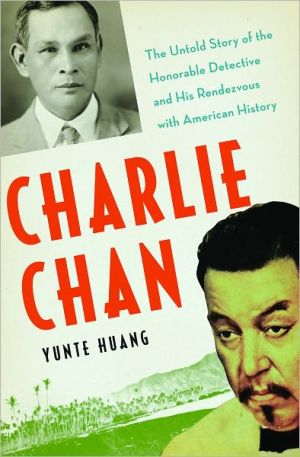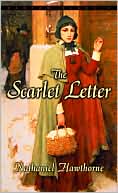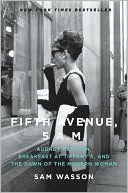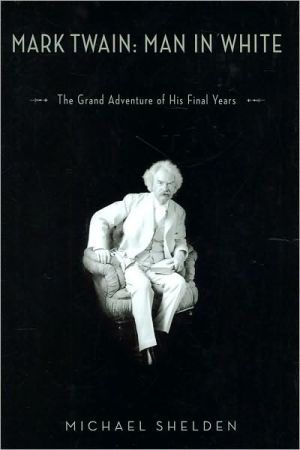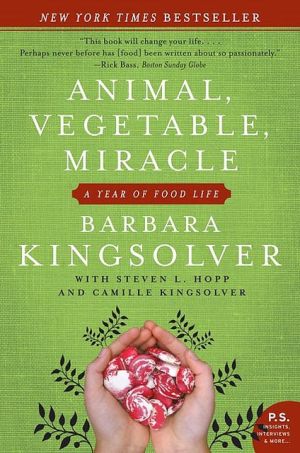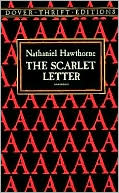Charlie Chan: The Untold Story of the Honorable Detective and His Rendezvous with American History
Praise for Charlie Chan\ “An ingenious and absorbing book that provides a convincing new mode for examining the Chinese experience through both Chinese and Western eyes. It will permanently change the way we tell this troubled yet gripping story.” —Jonathan Spence, author of The Search for Modern China and Return to Dragon Mountain\ “Huang’s deft and witty recounting of how Hollywood transformed a real-life detective from Hawaii into one of the most recognizable—and problematic—racial icons...
Search in google:
"An ingenious and absorbing book, that provides a convincing new mode for examining the Chinese experience through both Chinese and Western eyes. It will permanently change the way we tell this troubled yet gripping story."—Jonathan Spence, author of The Search for Modern China and Return to Dragon MountainThe Barnes & Noble Review[Huang] succeeds in revealing the complexity underpinning the stereotype, and the many divergent factors that led to the creation of Charlie Chan and where he sits, however uncomfortably, within American popular culture. For this country excels at creating characters "rooted in the toxic soil of racism" even though "racism has made their tongues only sharper, their art more lethally potent." And as insulting and sobering as this thought is, Huang says throughout his book, Charlie Chan and others like him have blossomed "in spite of as well as because of racism." Wrapping one's mind around such truths is enough to test the wisdom of even a fictional sage.
List of Illustrations xi\ Introduction xv\ Prologue 1\ Part 1 The "Real" Charlie Chan\ 1 Sandalwood Mountains 7\ 2 Canton 22\ 3 Paniolo, the Hawaiian Cowboy 28\ 4 The Wilders of Waikiki 37\ 5 "Book 'em, Danno!" 44\ 6 Chinatown 54\ 7 The See Yup Man 61\ 8 Desperadoes 68\ 9 Double Murder 73\ Part 2 Charlie Chan's Pop\ 10 The Other Canton 83\ 11 Lampoon 96\ 12 The Raconteur 102\ 13 The House Without a Key 108\ Part 3 Charlie Chan, The Chinaman\ 14 The Heathen Chinee 117\ 15 Fu Manchu 136\ 16 Charlie Chan, the Chinaman 146\ 17 Kaimuki 161\ 18 Pasadena 171\ 19 A Meeting of East and West 181\ Part 4 Charlie Chan at the Movies\ 20 Hollywood's Chinoiserie 189\ 21 Yellowface 198\ 22 Between the Real and the Reel 205\ 23 Rape in Paradise 211\ 24 The Black Camel 230\ 25 Racial Parables 238\ Part 5 Charlie Chan Carries on\ 26 Charlie Chan in China 247\ 27 Charlie Chan Soldiers On 259\ 28 The Fu Manchurian Candidate 268\ 29 Will the Real Charlie Chan Please Stand Up? 278\ Epilogue 289\ Appendix I A List of Charlie Chanisms 299\ Appendix II A List of Charlie Chan Films 302\ Acknowledgments 305\ Notes 307\ Selected Bibliography 329\ Index 337
\ BooklistStarred Review. This is a beautifully written analysis of racism and an appreciation of Charlie Chan and Chang Apana, made credible by Huang's background.\ \ \ \ \ NewsweekExcellent and very sympathetic...You don't need to be a fan of Charlie's to enjoy Huang's narrative, maybe because he's told so many stories here, all of them intriguing...All this—the lives of Biggers and Apana, Charlie’s career in novels, movies, TV shows, cartoons, and comic books—is told in the context of an America in the throes of nativism. Asian-Americans then were held in the same suspicion and contempt directed today at Arabs and Latinos, a fact that gives this story a lamentable but inescapable currency.— Sarah Ball\ \ \ San Francisco ChronicleWriting easily without turgid academic cant, Huang, a former restaurateur, offers a tasty narrative menu.\ \ \ \ \ The Daily Beast[A] fascinating cultural survey full of engaging tangents.... one of Huang's greatest accomplishments is his vivid narration of the history of Chinese immigration to the United States.... In the style of say, Louis Menand, Huang is that rare literary scholar with the light touch of a popular historian.... Huang's book is perfectly timed for the era of YouTube and Netflix and so hopefully will reintroduce what was created, with all its wisdom and imperfection.\ \ \ \ \ The Kansas City StarThe most interesting story may be Huang’s own. He comes to see Chan as 'both the racist heritage and the creative genius' of his adopted nation’s culture.\ \ \ \ \ The New York Times Book ReviewCharlie Chan remains, in himself, a sly and delightful figure, worthy of nostalgia—and of Huang’s very original, good-humored and passionately researched book.— Richard Schickel\ \ \ \ \ The OregonianIt's a story so engaging on so many levels that, as with any good detective book, you won't want to put it down.— Elinor Lange\ \ \ \ \ TimeA virtuoso of curiosity.... Huang digs up fascinating research on everything from the demographics of capital punishment in Honolulu to the origins of The Manchurian Candidate.... a work of exhaustively researched popular history that reads like a dime-store romance.— Pico Iyer\ \ \ \ \ Michael Dirda…almost as wide-ranging as it is enthralling…Yunte Huang's Charlie Chan is a terrifically enjoyable and informative book, one that should appeal to both students of racial history and to fans of one of cinema's greatest detectives.\ —The Washington Post\ \ \ \ \ Richard Schickel…a capacious, somewhat baggy, but always entertaining book about Chan and all the factors that account for his longevity. Before Huang is done, we have been treated to a vast gaggle of material about Chan's creator, Earl Derr Biggers; Honolulu (where Chan was nominally a police detective); Chinese culture and immigration to the West; Hollywood moviemaking, not excluding Fu Manchu and Anna May Wong—everything that might possibly shed light on the Honorable Detective's life and times and popularity…Charlie Chan remains, in himself, a sly and delightful figure, worthy of nostalgia—and of Huang's very original, good-humored and passionately researched book.\ —The New York Times\ \ \ \ \ The Barnes & Noble ReviewFrom Sarah Weinman's "THE CRIMINALIST" column on The Barnes & Noble Review\ \ Despite the many strides the past few decades have made toward eliminating ethnic injustice, race is an issue that isn't going away just yet -- and is, instead, heating up. A black president in conjunction with a crippled economy and a 24/7 news cycle means innocuous comments are blown out of proportion, latent ugly feelings become blatantly manifest in comments sections and public demonstrations alike, and complex examinations are passé in the face of cartoon-style rhetoric. There are many days when it feels like America hasn't learned from past mistakes, or can't admit it's making them again and again.\ Into this volatile mix comes Yunte Huang, an English Professor at UC Santa Barbara. He has spent the past two decades researching one of the most popular and troubling characters in American culture, a star of books and movies and a reminder of some of the country's worst anti-immigration sentiments and practices. Can this character be as Huang writes in Charlie Chan: The Untold Story of the Honorable Detective and his Rendezvous with American History, "a funny, beloved, albeit somewhat inscrutable...character who talks wisely and acts even more wisely" while also "a pernicious example of a racist stereotype"? Can he truly carry "both the stigma of racial parody and the stimulus of creative imitation?"\ The answer, of course, is yes, because the character in question is Charlie Chan, born of a primordial stew of culture and politics that includes a legendary Chinese-Hawaiian police detective, a Harvard-educated novelist, a journeyman Swedish actor, argumentative critics and millions of Americans looking for fleeting entertainment. Naturally this is a tricky maze of contexts to navigate, but in choosing to assemble a psycho-biography of Charlie Chan, Huang had to merge these disparate strands into a cohesive narrative whole. The end result is not merely successful, but a revelation: you're never going to think the same way again about the wise detective's broken English aphorisms like "An idle brain is the devil's workshop" or "Biggest mistakes in history made by people who didn't think."\ Before Charlie Chan's birth, in a series of six wildly successful novels written and published by Earl Derr Biggers in the 1920s, there was Chang Apana, who joined the Honolulu Police in 1898, mere days after Hawaii was annexed as a U.S. territory. Apana's rise up the ranks to detective seems improbable in hindsight: he was slight, he hardly spoke English, he didn't drink, and he was Chinese at a time when anti-immigration sentiments and laws specifically targeted his brethren. But Apana's rise to police prominence grew out of these so-called disadvantages, which in tandem with "his skill at disguise and his insider's knowledge off Chinatown" made him indispensable to his colleagues -- not to mention a prominent fixture in the island's news stories.\ Apana's exploits caught the attention of Earl Derr Biggers, a writer of upper-middle-class breeding (though he didn't really like Harvard very much) vacationing in Hawaii for health reasons and looking for inspiration. Apana delivered in spades, transforming a rather typical detective novel of its time, with an emphasis on family secrets and stolen jewelry, into something quite different. The portly, thoughtful Charlie Chan is a minor character in The House Without a Key (1925) but he has the gravitas and scenery-chewing presence of Sidney Greenstreet in Casablanca (or almost any other movie.)\ Biggers and Apana wouldn't meet until 1928, when the Chan books were deep into their publishing phenomenon phase, and the common assumption of Apana's direct influence upon Charlie is tempered by Huang's discovery that an actual Charlie Chan lived and operated a laundry in Akron, Ohio, Biggers' hometown. But by Huang's account (and the grainy accompanying photo) of the Biggers/Apana confab, it was equal parts friendly visit and cultural symbol: here was the white man making money off of cultural appropriation, and here was the Chinese detective who enjoyed his fame but never earned much lucre (he remained at a $50 a month salary all his life, even with three wives and many children to feed, and turned down Biggers' efforts to supplement that paltry income.) Once muse and creator met, fate had greater plans: both men would be dead five years later, within months of each other, and Charlie Chan would graduate to cultural phenomenon thanks to the dozens of movies, first featuring Swedish character actor Werner Oland.\ Seen from our vantage point, such transcendence of the original works seems inevitable. Biggers' detective novels are competently constructed, but the plots are forgettable and Chan's personality lingers as the sole literary aftertaste. Oland tries to make something of the character in the early films, but they don't hold up, and subsequent movies with others cast as Chan are even worse. Understandably, Huang spends more time parsing Chan's place in history instead of critically evaluating the works, which creates a strange paradox of believing in the critique more than the source work.\ But that paradox doesn't defeat Huang's thesis because he has so many rich sources of inquiry to explore with respect to Charlie Chan's cultural legacy. Huang argues that Chan's success stemmed from a Jazz Age-era need to create cuddly stereotypes in the face of ugly legislation like the Johnson-Reed Act, which pointedly disallowed Asians from immigrating. But that's just the starting point for other information-packed side trips, such as the history of unpaid Chinese labor in America, the story of a notorious rape case in Hawaii that was Clarence Darrow's final (and unsuccessful) case, a look at how the dastardly (and racially offensive) character of Fu Manchu complimented and corrupted perceptions of Charlie Chan, and the the fury of contemporary cultural critics such as Frank Chin and Jessica Hagedorn, the latter declaring with the title of a well-reviewed anthology that "Charlie Chan is dead."\ Where Charlie Chan falls somewhat flat is when Huang injects himself into the narrative. His intentions are understandable, tied in with his own history as an émigré to American soil in the early 1990s; and his travelogue-like descriptions of the Midwestern plains of Ohio and his search for Chang Apana's grave in Hawaii convey the requisite mix of whimsy and insight. But Huang can't quite commit to investing more of his personality into the book, as if he couldn't trust his entire self to the reader but knew he couldn't only rely on polished anecdotes and cogent analysis.\ But Huang succeeds in revealing the complexity underpinning the stereotype, and the many divergent factors that led to the creation of Charlie Chan and where he sits, however uncomfortably, within American popular culture. For this country excels at creating characters "rooted in the toxic soil of racism" even though "racism has made their tongues only sharper, their art more lethally potent." And as insulting and sobering as this thought is, Huang says throughout his book, Charlie Chan and others like him have blossomed "in spite of as well as because of racism." Wrapping one's mind around such truths is enough to test the wisdom of even a fictional sage.\ \ \
